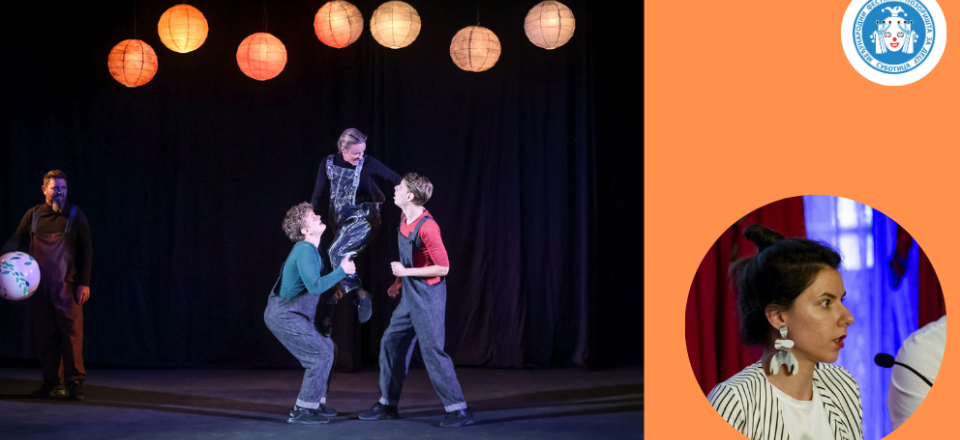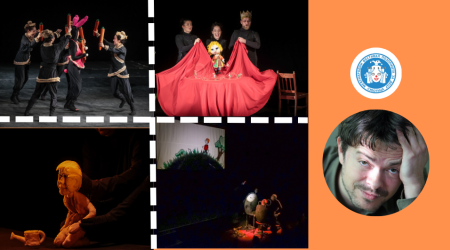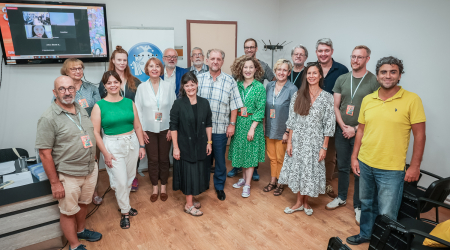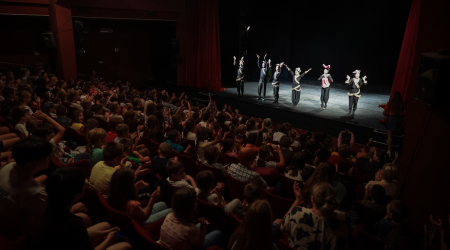News
Coming of Age - The play Over the Hill and Far Away
Back to...
Coming of Age
The play Over the Hill and Far Away
Folklore stories often times make the basis of plays for children firstly due to the importance of messages they convey which should be learned at an early age, secondly because these stories have been tried and tested in a unique way and sit well with a younger audience, and, finally, because of the lack of contemporary dramatic content for children and the youth. The International Festival of Children's Theatres Subotica began with a telling of a Czech legend and continued with a performance of Hungarian customs.
The play Over the Hill and Far Away by the Children's Theatre in Subotica (written by Hernyák Zsóka based on the text by Oláh Tamás and directed by Ricz Ármin) tells the story of two brothers who mature through a symbolic crossing of the initiation path to become men. The path of puberty - which is rarely, almost never, tackled in theatre for the youth - is presented as the end of children's carefree play and an adventure on which boys are sent by their parents. In the forest - a dark and somewhat scary place where the boys have no way of knowing what awaits them - they come across a deer who starts giving them various tasks. Their successful solving leads them to a fairy and, eventually as a reward, to meeting the girls with whom - now mature young men - they fall in love. In short, the play is like a trailer for puberty - a quick glimpse into the future of what awaits the target audience in a few years.
The authors of the play succeeded in addressing the younger viewers linguistically and stylistically, explaining an experience yet unknown to them that seems complicated to explain. The metaphor of a dense, mystifying and confusing forest filled with lurking threats, wonders, fears, magical creatures of the imagination, relapses of childhood - served perfectly as a space to research the topic of puberty.
As actors, the youngsters of the Children's Theater are true finds. Incredible is their energy, fitness, precision of stage movement, speed of transformation, dexterity in animating silk ribbon puppets, the confidence during scenes with the elements of the shadow theater. This is especially true for the play’s protagonists Ágyas Ádám and Kocsis Endre, followed by Mezei Gresák Lea, Gál Elvira, Dudás Dániel and Horváth Blanka. Music also plays a large role in the performance. The director succeeded in connecting the music well with the acting in parts where the character’s body is used as an instrument.
Emotional turmoil, the joy of first love, the tireless strength of youth are all coming together in a play riddled with elements of Hungarian folk customs. Although the play is a gem of the children's theatre scene due to its topic, approach and direction – it has an additional layer of importance because it showcases the magnificent talent of young actors and actresses who the audeience can only look forward to watching in the next seasons.
Divna Stojanov
Back to...












